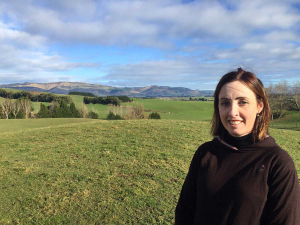Moves are underway for farmers and Māori in Southland to try and resolve and get clarity over what appears to be a controversial section of the proposed Gore District Plan.
Earlier this month, local Federated Farmers have been outspoken about a provision in the plan relating to what appeared to be a blanket move by the Gore District Council (GDC) to declare the whole district as a Site and Area of Significance to Māori (SAMS). It was believed that this was a move enshrined under the RMA.
Feds said such a move would have meant any basic and major on-farm work could not take place without a cultural report being obtained for a resource to be granted. But it seems this is not exactly the case.
Federated Farmers member, Bernadette Hunt told Rural News that it turns out the GDC hasn't declared the entire area a formal site of significance, which is a specific RMA designation.
"What they are saying is that the whole environment in the district is significant to Māori which is quite different. But what we don't understand is, what the ramifications are of that for farmers when it comes to resource consents or any non-permitted activity. Essentially, it's fear of the unknown," she says.
Hunt says for farmers, the problem is lack of clarity and knowing exactly what the intentions are of Hokonui Rununga, which represents about 14,000 members. She says intentions are one thing, but the final precise legal wording in the plan itself will determine what farmers can and cannot do down the track.
She admits that Feds have been called out by the Rununga for some of the statements and words used in highlighting the issues, but notes there are misconceptions on both sides.
She says there is not bad intent on either side but adds that a lot needs to be clarified and misunderstandings cleared up.
"So, at some stage soon we are going to sit down together and try and work this through. We have seen a process like this work well before - a good example was winter grazing.
"When you put the parties around the table and say, 'okay, this is the problem we are trying to solve, let's get our heads together and work out what is the best way to solve that for everyone's benefit'. Often, we can get very successful outcomes, so hopefully we can do the same with this one," she says.
In an ideal world, Hunt says it would be great if the two parties could find a solution and present this to the GDC and, in the end, help them. She says Feds have a lot of experience in mediation of this nature but she's not going to predict the outcome of the talks between Feds and Hokonui Rununga.
Farmers Under Pressure
While Bernadette Hunt is adamant the present problems with the GDC proposed plan is not a case of farmers verses Māori, she says it highlights yet again the pressure farmers are feeling.
She says farmers are feeling encroached from all different directions. She says authorities and organisations keep coming at farmers and encroaching on their flexibility over land use, taking fees from them for stuff they don't even want to do. "In the past we have tried to fob this off, but in the end, it just seems to get worse over time".
"A classic example: a couple of years ago a requirement came out with the nitrogen cap which most of us felt we could live with. But you then had to report on your nitrogen limits to make sure that you were staying within the N cap.
"When we reported that, we were charged a fee by a regional council for receiving the data and if we didn't file a report, we got charged a fee for not putting the data in," she says.
Hunt says this is why farmers are gun-shy of the GDC proposed plan because they fear what may lie ahead.



















